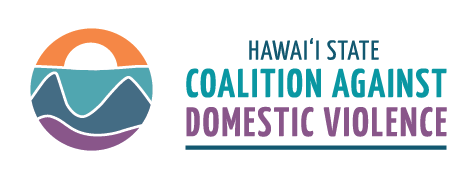The coronavirus pandemic has created additional risks for survivors and forced domestic violence programs across the nation to become more creative in their advocacy and shelter services. In Hawai’i, one local domestic violence hotline reported a 46% increase in contacts in the first six months of the pandemic. Statistics from the National Domestic Violence Hotline also show that there was a 50% increase in calls from Hawai’i survivors in the first month of the pandemic compared to the month prior and that 19% of calls discussed COVID-19 as a tactic or form of abuse.
Many survivors have been forced to remain at home with their abusers in lockdown, causing more tension and danger for survivors, children, pets, and other dependents. With mandatory lockdowns and stay-at-home orders caused by the public health crisis, survivors have a more difficult time accessing social services and medical care providers that are generally easier to reach pre-pandemic. To accommodate the need to discretely call for help, some hotlines have created text and online chat lines while other programs have changed in-person legal or advocacy assistance to over the phone.


